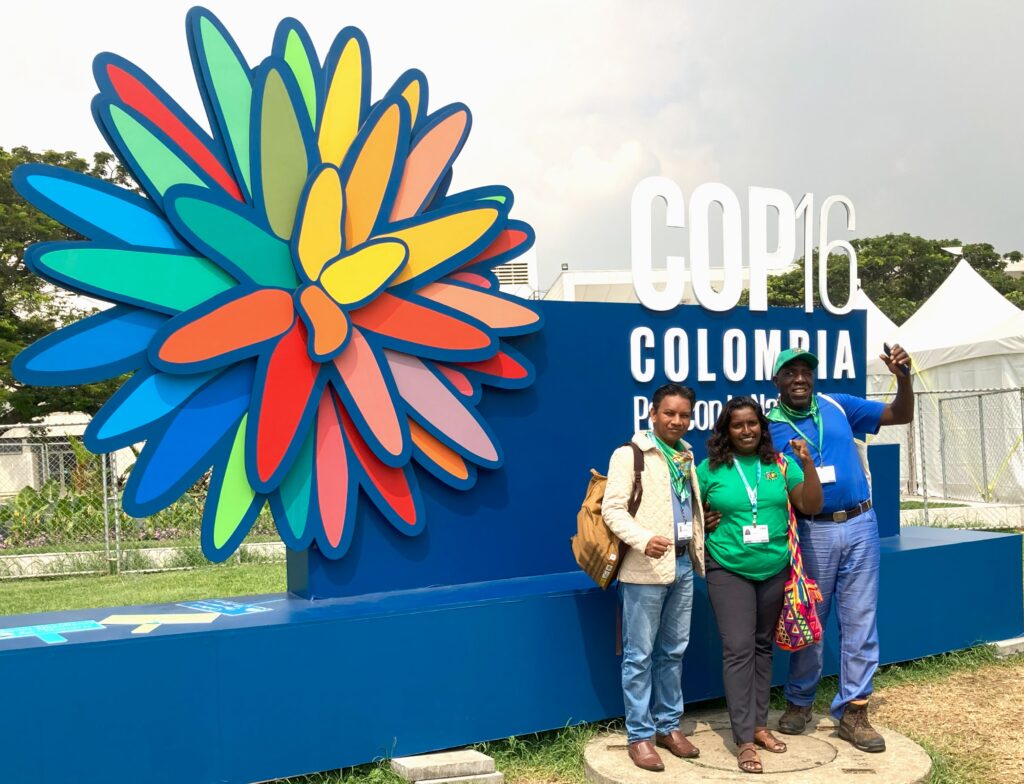Digital colonialism and threats to genetic resources
CBD, COP16, DSI and AI

I recently attended the 16th Conference of the Parties (COP16) to the Convention on Biological Diversity (CBD), held in Cali, Colombia, from October 21 to November 1, 2024. It became clear to me that the CBD has strayed far from its original purpose of conserving biodiversity. Instead, it now serves as a platform for multinational corporations, particularly from countries like Japan, to legally exploit genetic resources and traditional knowledge of indigenous peoples worldwide.
The Nagoya Protocol, adopted at COP10 in Nagoya, Japan, on October 29, 2010, was intended to promote access to genetic resources and ensure fair and equitable benefit-sharing (ABS). However, discussions at COP16 revealed that this protocol has become a tool for corporations to subtly appropriate genetic resources and the traditional knowledge of local communities for commercial gain. Article 8(j) of the CBD, which emphasizes in-situ conservation and the use of traditional knowledge for innovation, is being co-opted for corporate interests. Delegates from countries like Japan and South Africa, alongside corporate representatives, actively explored ways to commercialize these invaluable resources.
A significant focus at COP16 was the use of artificial intelligence (AI) and digital sequence information (DSI) to exploit genetic resources. Pharmaceutical and agricultural corporations, especially those developing seeds and related products, are increasingly using these technologies to develop new products and economic models. This trend hints at a future where corporations leverage AI and DSI to create synthetic life forms an idea subtly echoed by the lifelike jaguar sculptures displayed throughout the conference venue, symbolizing technological potential and innovation in genetic science.
This trajectory poses a grave threat to biodiversity rich tropical countries like Sri Lanka. Multinational corporations could use patents to legally appropriate genetic resources and traditional knowledge, monopolizing industries such as agriculture, healthcare, and food production. This would deepen existing inequalities, giving rise to what can only be described as digital colonialism where corporations dominate global resources and markets through advanced technologies.

To counter this trend, it is essential to build a broad-based movement that includes rural farmers, environmental activists, and concerned citizens. Such a movement must challenge corporate dominance over agriculture and protect food sovereignty. Only through collective resistance can we prevent the aggressive exploitation of agricultural genetic resources and traditional knowledge.
The efforts of the companies must be opposed because we do not own these resources and have the right to auction traditional knowledge. Instead, they belong to the ancestors of our nations. They built and nurtured traditional knowledge through their wisdom, experience, and hard-earned efforts, often sacrificing their lives in the process. The knowledge thus cultivated is the collective inheritance of the current and future generations of these countries. It is a form of common property. No one should allow multinational corporations to claim ownership of this heritage.
Sri Lanka, which has yet to ratify the Nagoya Protocol, must firmly resist doing so in the future. We must educate policymakers about the risks of such agreements and advocate for the preservation of our genetic heritage and traditional knowledge. By safeguarding these resources, we can protect our national interests and ensure equity in the use of biodiversity.
Sajeewa Chamikara – Movement for Land and Agricultural Reform
ALL CONTACTS
- No. 57, 1st Lane, Meda Welikada Road, Rajagiriya, Sri Lanka.
- +94 112 870 369
- monlar@sltnet.lk
- www.monlar.lk
SUBSCRIBE
Subscribe us to get latest updates of Sri Lankan Peasant movement
Error: Contact form not found.
- Monlar - Copyright 2024
- donations@ong.com
- volunteers@ong.com
- contact@ong.com










Leave a Reply